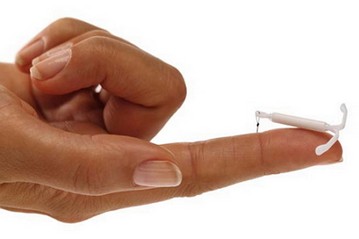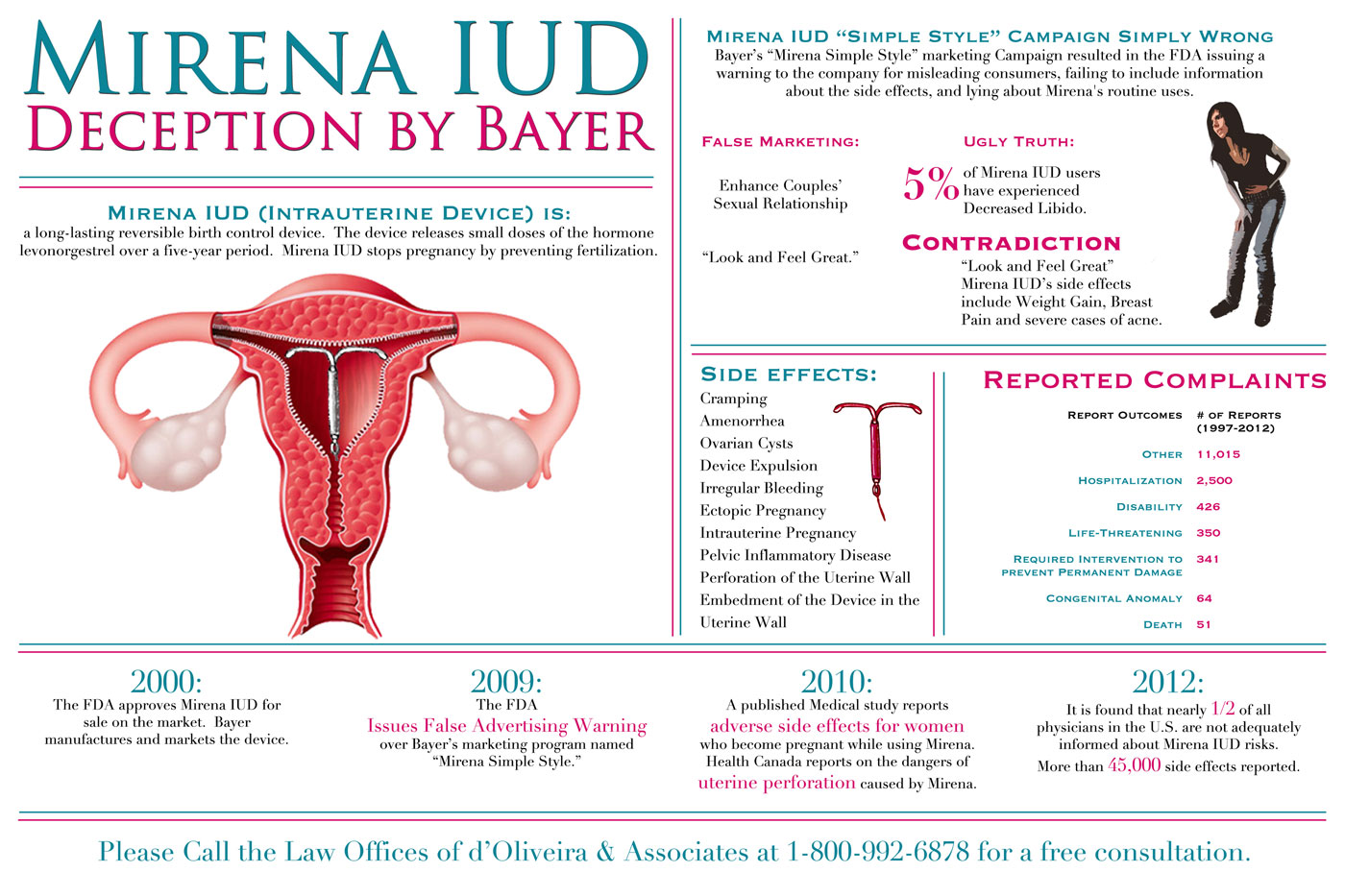Mirena And Pregnancy

Contents:
- Pregnancy With Mirena
- Important Points
- How to Remove Intrauterine Device?
- Can the Removal of the Mirena Hurt the Baby?
- Can the Pregnancy Continue, if the Mirena is Not Removed?
Pregnancy With Mirena
Not counting abstinence, absolute protection against pregnancy does not provide any means of contraception, including intrauterine device. Although it is a very effective way to prevent unwanted pregnancies (more reliable are only already mentioned abstinence and tubal ligation), when using the intrauterine device there is still a small chance of pregnancy.
Indeed, within a year, on average, 1 out of 200 women using intrauterine device get pregnant. The likelihood that the pregnancy will be ectopic, in such cases, is significantly above the norm. If it is determined that there is an ectopic pregnancy, you need to have an abortion-medical or surgical, depending on the date.
The risk of an unwanted pregnancy is highest in the first year after the intrauterine device was introduced. 40-50% of these pregnancies end in miscarriage, usually in early pregnancy (usually the probability of miscarriage is more than two times less). In addition, the longer after pregnancy the device remains in the uterus, the higher is the risk of complications during pregnancy, both for the mother and child. If you remove the device in the early stages, the risk is significantly reduced, although not altogether.
It must be remembered that the use of intrauterine contraception significantly (according to some sources, four to five times) increases the risk of ectopic pregnancy. It is believed that the risk of ectopic (extrauterine) pregnancy increases in the long-term (more than five years) using the intrauterine devices, but this issue is still poorly understood by scientists.
When using traditional device, which contains copper, the disappearance of menstruation is a troubling sign. In this situation, we recommend that you should not postpone a visit to the doctor. Generally, you must report the gynecologist if you have any pain in the abdomen, which can be a symptom of an ectopic pregnancy.
In rare cases, the normal pregnancy is possible. If in such a situation, leave an uterine device in place, the risk of miscarriage, premature birth and infection increases significantly. At the same time removing the device can also provoke a miscarriage. It is believed that intrauterine devices containing hormones are more dangerous to the fetus than traditional ones, containing copper, but this issue is still poorly understood.
Important Points

The optimal time of using the device Multiload is 5 years. If the woman wants a baby, the device can be removed at any time at her discretion. It does not depend whether the term is expired or not. After you remove the device the fertility is restored pretty quickly. For most women, pregnancy occurs within the first 12 months.
The frequency of pregnancy with IUD is low, 2-3 per 100 women, using the IUD for a year. In general, it does not pose a particular risk to the fetus and in most cases the pregnancy successfully ends with the birth of a healthy baby. The presence of the IUD in the uterus during pregnancy does not lead to birth defects or malformations of newborns. However, such pregnant women are under special control, because the frequency of occurrence of various complications, particularly infectious, is higher.
Remember: only the doctor can introduce the device!
When you use the device you should undergo regular checkups at the gynecologist. First time checkup should be performed 4-5 days after the introduction, (prior to the checkup there should be no sexual activity), then visit a doctor every 6 months.
How to Remove Intrauterine Device?
If the device filament can be seen during a routine pelvic exam, the doctor may remove the device immediately-it will only take a few seconds. If they are not visible, the doctor will have to determine the location of intrauterine device using ultrasound, and remove it in accordance with the received image.
Can the Removal of the Mirena Hurt the Baby?
In some cases, it can, so if you suspect that you got pregnant consult your doctor as soon as possible. Never attempt to remove the device by yourself.
Can the Pregnancy Continue, if the Mirena is Not Removed?
Yes, it can. Sometimes doctors don't recommend to remove the uterine device-for example, if ultrasound shows that it practically has grown into the placenta. However, in this case, there is an increased probability of late pregnancy complications-the most common of them is premature birth.